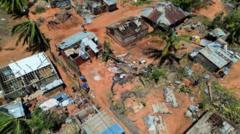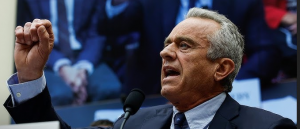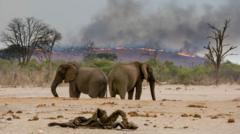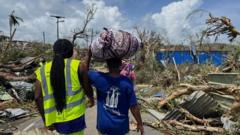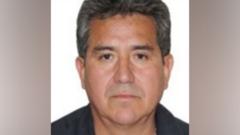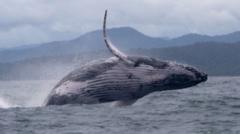At COP29, Azerbaijani President Ilham Aliyev states that fossil fuels are a "gift of god," pushing back against criticism of the country's emissions, while UN Secretary-General António Guterres and other leaders push for a rapid shift to renewable energy amidst a worsening climate crisis.
COP29: Diverging Perspectives on Fossil Fuels Amid Climate Crisis
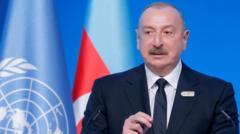
COP29: Diverging Perspectives on Fossil Fuels Amid Climate Crisis
The COP29 conference in Azerbaijan showcases contrasting views on fossil fuels, as President Aliyev defends oil and gas, while global leaders call for urgent climate action.
Azerbaijan has taken center stage at the ongoing COP29 conference, where President Ilham Aliyev's declaration that oil and gas serve as a "gift of god" has caused a stir. While defending his country's fossil fuel reserves, Aliyev criticized what he termed "Western fake news" regarding Azerbaijan's emissions and argued that countries should not face reproach for possessing natural resources. Azerbaijan is poised to expand its gas production by 33% over the next decade, a move that has raised eyebrows among environmental advocates.
In stark contrast, UN Secretary-General António Guterres proclaimed the need to move away from fossil fuels, labeling any increase in their use as "absurd." He emphasized that the "clean energy revolution" is inevitable, with governments unable to hinder its progress. The UK, through Prime Minister Sir Keir Starmer, is promoting a significant emission reduction target of 81% by 2035, urging other nations to follow suit. Starmer's comments highlight a competitive atmosphere surrounding clean energy jobs and the economy of the future, despite the potential backlash resulting from Azerbaijan's oil-centric focus at COP29.
Concerns about the suitability of hosting COP29 in Azerbaijan stem from its leadership, particularly the conference chair, a former oil executive from the state-owned oil and gas company, Socar. Observers have speculated that the event may serve as a platform to attract investment in Azerbaijan's fossil fuel sector. Aliyev contended that his country has faced "slander and blackmail" driven by misinformation from Western media, asserting that Azerbaijan's share in global gas emissions is a mere 0.1%. He stated that the presence of natural resources should not be a cause for blame but rather recognized as essential to the global market.
As COP29 progresses, discussions about equitable financial support for developing nations have been highlighted. Leaders of these nations, who were absent at the conference, call for a collective commitment from wealthier countries to establish a fund potentially amounting to $1 trillion to help implement climate strategies. UN Chief Guterres has underscored the urgency of the situation, emphasizing that 2024 could witness record global temperatures, reinforcing the need for a collective approach to address climate change.
Despite the differing narratives presented at COP29, the path to reaching a consensus remains challenging. With pressing issues surrounding climate finance and accelerating climate emergencies, leaders must navigate the complexities of both fossil fuel reliance and the imperative for defense against climate disruption. The conference, lasting until November 22, is filled with contentious debates that reflect the difficulties in forging a unified global climate strategy.

